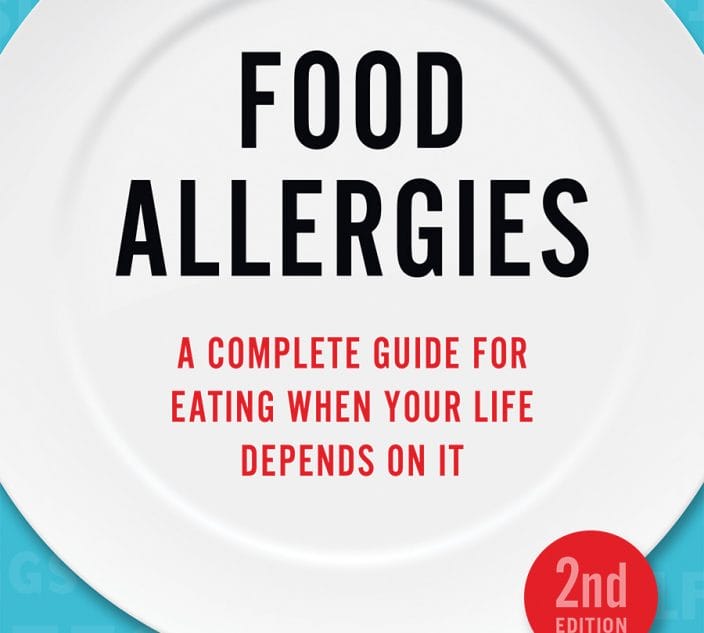continued from previous page
What does this mean for parents?
Laurel: One thing I say that is sometimes controversial is that I don’t believe every child needs a 504. There are some schools that have very good policies, and very good procedures, and a child may not need any additional accommodation at all. Take a shellfish allergy, for example. Shellfish is hardly present in schools. If the school has good policies in place, and is being amenable and willing to work with you, you may not need to go to that level. But, always get something in writing.
ALP recently covered a dismissed suit against P.F. Chang that alleged it’s discriminatory to charge a person with celiac disease extra money for a gluten-free meal. What other legal issues are coming up with restaurants?
Mary: We’re seeing more restaurants raising an issue with people bringing outside food in. They say that it’s barred by their city or state health codes, or that their rule is you’re only allowed to eat the food that they serve. Whether a restaurant can do this is a yet-to-be-decided question.
How will it be decided? Will it take a landmark case?
Mary: It’s probably not going to be one case, it’s going to be a few cases. One of the really interesting things about being in allergy law right now is that so much of it is new. Courts are still figuring out how to apply federal disability rights laws in the context of allergy.
For example with restaurants, the question is: What service are they providing? If it’s simply food, such is the case with a fast-food restaurant, and the food can’t be safely eaten, the ADA does not require any entity to fundamentally change what they do.
But if you’re talking about atmosphere and sitting at the table and the whole experience of dining, that’s a different service. My personal opinion is that a restaurant couldn’t be required to offer an allergy-free menu. However, what is quite a different question is whether a person could come into a restaurant as part of a group and be able to eat food she brought with her if that person couldn’t eat the food the restaurant was providing.
Are there other legal issues with restaurants?
Homa: Some restaurants think they can hide behind a disclaimer. Have you ever driven behind a truck carrying rocks that says: ‘Don’t drive close, I’m not responsible for rocks hitting your windshield?’ Well, that’s not true. They need to cover their rocks.
It’s the same thing with food allergies. You don’t get to say – ‘If you eat here, you’re assuming all the risks.’ If I tell a server that I’m allergic to nuts, hypothetically, and they serve me a dish with nuts in it, that little disclaimer isn’t going to change the fact that the restaurant staff were made aware.
Laurel, you were involved in the effort to pass restaurant legislation for allergies in Massachusetts, which became law in 2008. Are things any different in the state now?
Laurel: In the bill, it says that the Massachusetts Department of Public Health will determine how a restaurant can be deemed “allergy-friendly,” and they will come up with regulations to determine that. To date, those regulations haven’t been passed. The biggest reason is pushback from the restaurant industry because they’re afraid that if a restaurant calls itself “allergy-friendly”, they are going to be more liable than if they didn’t say anything.
Also, the committee can’t decide what you can consider an “allergy-friendly” restaurant. Would it be that the ingredients are checked, and then the suppliers are checked and the suppliers of the suppliers are checked? Do you update your menu every week? Every day? Who would be in charge of overseeing this? There are a lot of issues that come into play with restaurants that aren’t always as easy as people think.
What are some of the other most common misconceptions when it comes to food allergies and the law?
Mary: There’s a lot of confusion over what people’s rights are. I deal with state and government programs and access to places of public accommodation, such as after-school programs and things like that.
I was a disability rights lawyer long before I was a food allergy parent. It was humbling for me when my youngest son, who has life-threatening food allergies, became old enough to go to day camps or after-school programs. I knew what the law required, and he was still being turned away.
For example, a wonderful summer day camp in my community was suggesting that I needed to come to camp with him, or that I sit in the parking lot all day, and the EpiPen needed to be kept in the office. It took a lot of patience, time and effort to work with them – and that’s with me already knowing my rights.
Just last week I heard of an allergy parent who had to sit outside her kid’s program. I can certainly understand why a parent might choose to do that, but there are many parents who can’t do that, and they shouldn’t be required to.
Homa, you’ve been involved in the lobby to try to get sesame added to the list of top allergens. Does your background as a lawyer help?
Homa: I think my background does help to open doors. People may be more willing to listen and respond to requests for support when I’m using my letterhead. I also think that being able to think critically and understand the power of incremental change, such as by using regulatory frameworks that are already in place to get labeling progression, instead of only approaching it as an amendment to legislation, is beneficial. The history of big changes is dotted with small victories.
Is there anything you’d like to add about the Allergy Law Project website?
Laurel: Well, I’m a lawyer so I would just want to disclaim that we’re not there to give individuals advice. We’re not there to establish an attorney-client relationship with a person and give one-on-one advice. We want to keep the topics broad. We’re not there to be anyone’s particular lawyer.
Visit the Allergy Law Project here.
2015 Honorees in The Allergy Advocates Series:
Brian Hom: The Father Driven by His Allergic Son’s Memory
Keeley McGuire: She’s Queen of the Lunchbox
Jennifer Jobrack: Meet FARE’s Champion of Stock Epinephrine Laws
Kyle Dine: Musician’s Musical Message: It’s OK To Be Allergic
Lisa Horne: The Ultimate Food Allergy Connector
Tiffany Glass Ferreira: Razor-Sharp Humor Makes the Food Allergy Case
2014 Honorees in The Allergy Advocates Series:
Lisa Rutter: A Force of Good for Food Allergy
Karen Harris: Food Allergy’s Educating Dynamo
Cathy Owens: The Nurse Who Is the Allergic Student’s Protector
Jenny Sprague: Courageous Woman who Unites Allergy Bloggers
Gina Mennett Lee: A Voice of Reason for Food Allergy at School and Daycare
Lianne Mandelbaum: A Force of Nature for Safe Travel with Allergies
Anne Russell: A Nurse Driven to Improve Food Allergy Education







